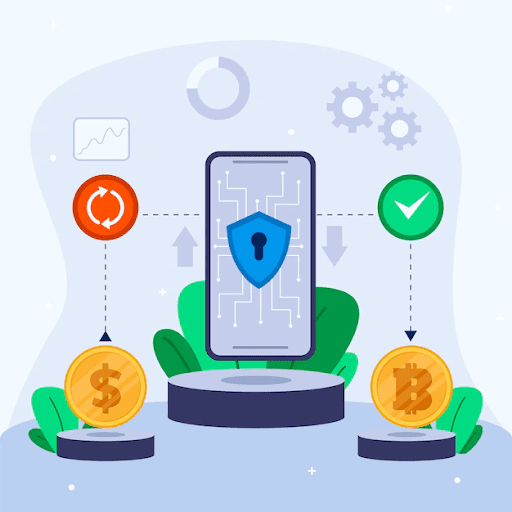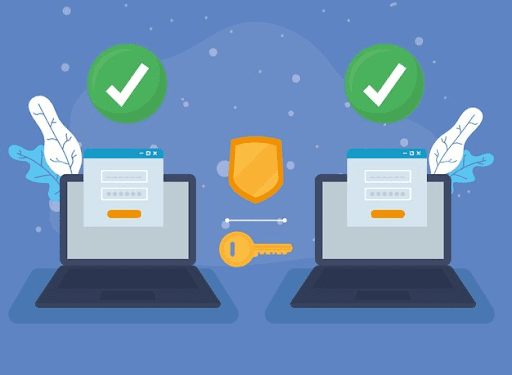The decision between using a free VPN and investing in a paid VPN service is crucial, with each option offering distinct advantages and drawbacks.
This comprehensive guide explores the key differences between free and paid VPNs, helping you make an informed decision based on your specific needs and priorities.
Understanding Free VPNs
Free VPN services are attractive because they offer online privacy and security without any upfront financial commitment. However, they come with several limitations and potential risks.
Pros of Free VPNs
- No Cost: The most obvious advantage is that they are free to use, making them accessible to everyone.
- Basic Privacy and Security: Free VPNs can provide a basic level of privacy and security, such as encrypting your data and masking your IP address.
Cons of Free VPNs
- Limited Data and Speed: Many free VPNs have data caps and limit bandwidth, resulting in slower internet speeds, which can be particularly problematic for streaming or downloading large files.
- Security Risks: Free VPNs may have weaker security protocols and are more likely to track and sell your data to third parties.
- Limited Server Options: They usually offer fewer server locations, which can lead to overcrowded servers and reduced performance.
- Ads and Privacy Concerns: Many free VPNs rely on advertising for revenue, which can lead to intrusive ads and privacy concerns.
- Lack of Advanced Features: Features like kill switches, multi-hop connections, and split tunneling are often absent in free VPNs.
Understanding Paid VPNs
Paid VPN services generally offer more comprehensive features and stronger security compared to their free counterparts.
Pros of Paid VPNs
- Enhanced Security and Privacy: Paid VPNs typically offer stronger encryption and more secure protocols, with a strict no-logs policy.
- Higher Speeds and Unlimited Bandwidth: They are more likely to provide higher speeds and unlimited bandwidth, enhancing the overall internet experience.
- Wide Range of Servers: Paid VPNs offer a more extensive network of servers worldwide, reducing congestion and improving connection quality.
- Advanced Features: They often include additional features like a kill switch, split tunneling, and dedicated IP options.
- Better Customer Support: Paid VPNs usually offer superior customer support, including live chat and detailed guides.
Cons of Paid VPNs
- Cost: The most significant downside is the cost, as these services require a subscription fee.
- Complexity for Beginners: Some paid VPNs may be more complex to set up and use, potentially overwhelming for beginners.
- Overpaying for Unnecessary Features: Users might end up paying for features they do not need.
Free vs Paid VPNs: Which Should You Choose?
The choice between a free or paid VPN depends on your specific requirements:
For Basic Use
If you need a VPN for occasional, basic internet browsing and are not concerned about data limits or having the fastest speeds, a free VPN might suffice.
For Regular or Intensive Use
If you frequently use the internet for activities like streaming, gaming, or downloading large files, or if you require a high level of security and privacy, a paid VPN is a better choice.
For Businesses and Remote Work
For business users or remote workers handling sensitive information, a paid VPN is essential due to its enhanced security features and reliability.
How to Choose the Best Paid VPN

When selecting a paid VPN, consider factors like the strength of encryption, the range of server locations, the speed and stability of the service, the provider’s privacy policy, and the availability of customer support.
Also, evaluate the user interface for ease of use and whether the VPN offers specific features that meet your individual needs, such as streaming capabilities or support for multiple devices.
Using a Free VPN for Streaming
While some free VPNs can access streaming services, they often have bandwidth limitations, lower speeds, and fewer server options, which can result in buffering and poor video quality.
Additionally, many streaming services actively block IP addresses known to belong to VPNs, and paid VPNs are generally more adept at circumventing these blocks.
Free VPNs Without Ads
Completely free VPNs without ads are rare.
Even if a free VPN does not show ads, it may employ other means to monetize its service, such as selling user data.
Always read the privacy policy of a free VPN to understand how it handles your data.
Final Thoughts: Making an Informed VPN Decision
Whether you opt for a free or paid VPN, the key is to align the service with your specific requirements and usage patterns.
Free VPNs can be a starting point for those new to VPNs or with minimal requirements.
However, for consistent, high-quality service, especially in scenarios demanding stringent security and privacy, a paid VPN is typically the more reliable choice.
Remember, the ultimate goal is to enhance your online experience while safeguarding your digital privacy and security.
In conclusion, the decision between a free and a paid VPN should be based on a careful assessment of your specific needs. Free VPNs can be suitable for basic, infrequent use, but they come with limitations and potential security risks. Paid VPNs, on the other hand, offer comprehensive features and robust security, making them a more reliable choice for regular or intensive users who prioritize privacy and performance.
Frequently Asked Questions
Are free VPNs safe?
Free VPNs can offer a basic level of security, but they often have weaker encryption standards and may track user data, making them less safe than paid options.
Can I switch from a free to a paid VPN?
Yes, you can easily switch from a free to a paid VPN. Most paid VPN services offer a straightforward setup process, making the transition seamless.
Do all paid VPNs offer a money-back guarantee?
Many paid VPNs offer a money-back guarantee, allowing users to try the service risk-free for a specified period. However, policies vary between providers, so it’s important to check the terms beforehand.





























